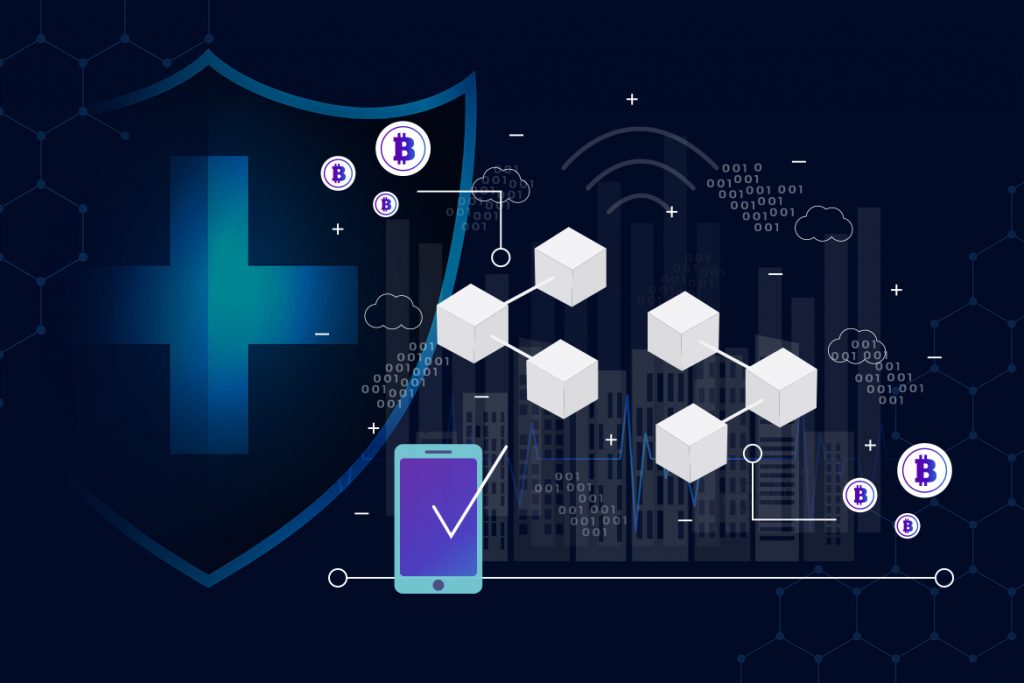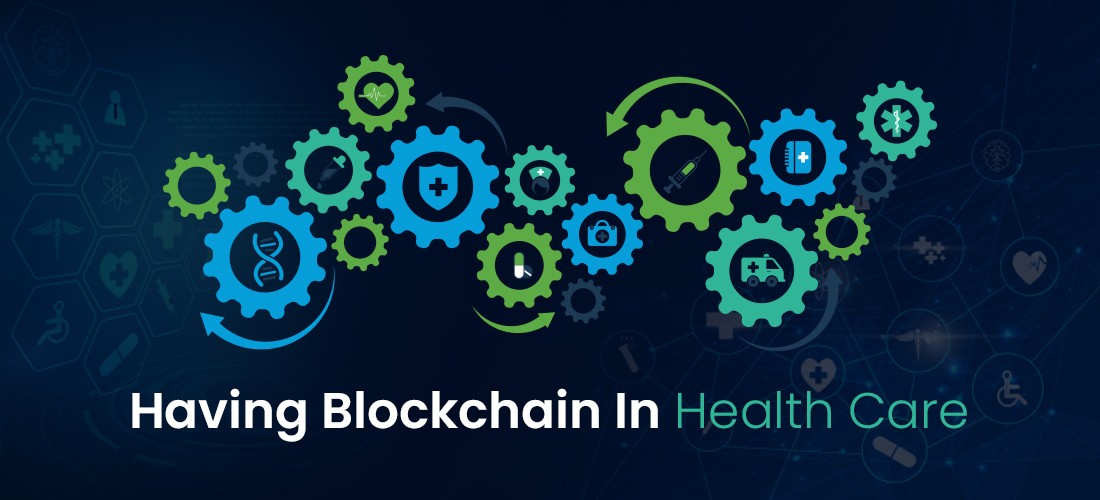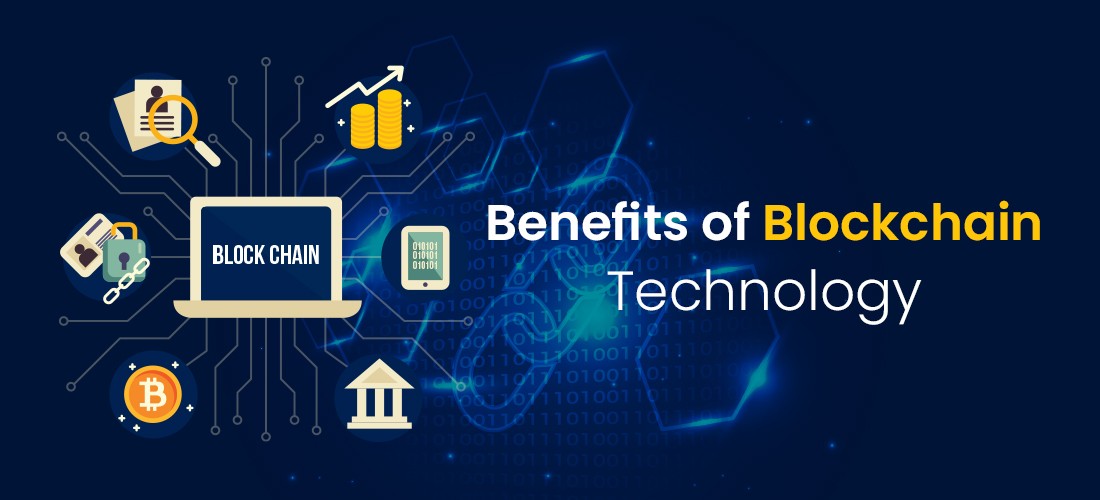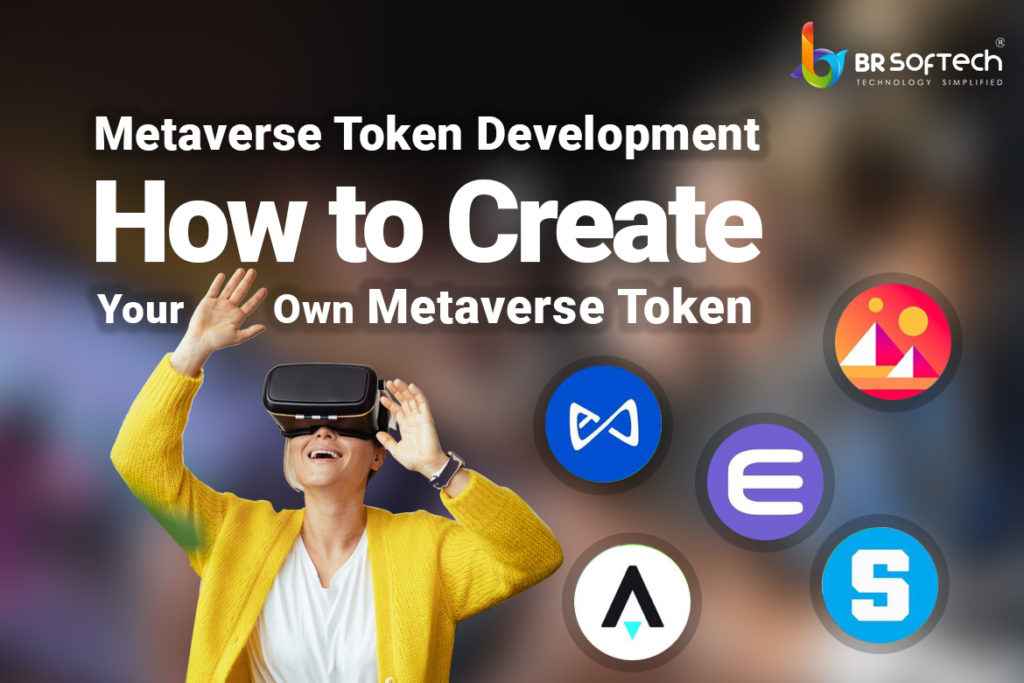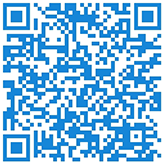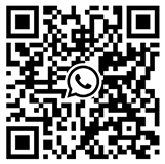Blockchain, a technology that is responsible for the underlying boom in the world of cryptocurrency is now being used for a more essential use that is your health and medical records. There are already many medical records stored and sitting in the cloud, that are placed by the medical persons, offices, and doctors. It is beneficial as this process saves data management cost, saves lives, and provides fast access.
Although, hackers can hack your private information from the cloud through various security threats as these conventional security tactics are insufficient nowadays. So, to improve this method, blockchain development companies introduced blockchain technology to the world. It is a standard-bearer that is used for secure financial transactions online and it is ranked no. 3 in Computer society’s top 10 tech trends to watch and despite all, it is now being considered as a solution to all those security threats.
But as we know, everything has its advantages and disadvantages, it is not clear yet whether this blockchain technology would be legally feasible and cost-effective. However, blockchain development company claims that this technology is capable of handling all security threats and large databases but we don’t know whether this can handle large medical files!
We believe in smart work and utilise the custom development modules which can be easily modified as per our customer’s specific needs with the motive to deliver the customised blockchain app development service.
To get the answer to all of these questions, read this article that includes the details of blockchain technology, benefits, and drawbacks of blockchain technology, and can it handle medical records or not?
What Is the Meaning of Blockchain Technology?
In Blockchain technology, a person can exchange data securely with regulating access and providers by using smart contracts, interoperability standards, and cryptographic identities. This technology has the potential to disturb the present modes of accumulation, patient data access, exchange, contribution, and control. These longitudinal medical records and resulting comprehensive can improve the quality and cost of patient care for populations and individuals too.

In other words, this technology is a digital ledger of confirmed transactions that are sealed together in an encrypted chain chronologically. In this, the ledger is updated in a few minutes with the new transactions that permit every system to have access to a similar present shared ledger.
It is a kind of chain of dealings in a block that is encrypted to prevent the data from hackers so that hackers would have to cross all the transactions presented in the block.
How It Can Be Used to Secure Medical and Health Records in This Quarantine Time?
Additionally, for the financial transactions, Blockchain software development companies trust that Blockchain technology can verify and secure legal, personal, and business documents such as- patents, trusts, wills, contracts, marriage certificates, notarizations, death certificates, etc. but now it is handling medical records too.
Method
A blockchain is helpful to prevent the medical data and health records with the cryptography and multi-signatures. This data is hashed firstly onto the blockchain and after that, there are applied multi-signatures so that people can have access if they got approval from the right number of people. Through using this blockchain technology, there could be a regulation that to access the patient’s records, nurses, doctors, and patients must have all the approval or they should have the permission of 2 or 3 people.
Blockchain development company believes that this blockchain technology is developed to find out the key barriers for blockchain adoption in information security, data integrity, interoperability, scalability, identity validation, and especially in healthcare. It provisions 16 configurations by manipulating 4 modes. In this, a proof-of-control tool that is open source is developed for analyzing the activity of the novel patient block system and components configurations. For showing the proposed framework’s utility and identifying resource consumption, the extensive testing was being performed on every 16 configurations with different scenarios including a variable number of imported and existing health records.
When any hospital uses a medicine ordering application, it contains details of all the medicines and financial transactions, so it is essential to keep that records safe from hackers. Similarly, when a medical staff creates the data of a particular patient, a new block is made and shared with all peers in that network of that patient. When this new block is approved by all the peers, then this system will be inserted in the existing chain. This process permits us to get a global view of the medical history of the patient in a verifiable, efficient, and permanent way.
Opportunities by Having Blockchain In Health Care

- Enhanced transparency in health records would reduce the need for a health information exchange (HIE) operator as all the people will have access to the shared ledger to uphold a secure conversation without having any difficult brokered trust.
- There is a shared framework for digital identities of patients that uses public and private identities that are secured by cryptography and generate a more secure and singular method of protecting the identity of patients.
- Transaction costs are decreased because of near-real-time processing that will make the system more reliable and efficient.
- Secure, distributed access for patient longitudinal health data across the shared ledger.
- Distributed data allows near real-time updates from all party’s networks.
- Smart contracts build a reliable rule-based method for retrieving data of patients that can be allowed to some specific health organizations.
In simple words, installing a blockchain structure to electronic health records (EHRs) is very beneficial. And, adopting this structure to keep medical records secure will also help in managing them along with the confidentiality, authentication, data sharing, and accountability while permitting medical researchers to access insights for a patient’s medical treatment. It refers to possibly transforming how data is collected and accessed for research purposes. Here are some more detailed benefits of blockchain to maintain medical records.
What Type of Benefits We Will Get by This Blockchain Technology?

Blockchain app development company explains four detailed benefits of using blockchain technology in keeping secure the health and medical records of patients:
- Patients have so much control over their medical data so that they can view it anytime.
- Longitudinal patient records such as- disease registries, compiling episodes, lab results, and treatments, all can be attained by blockchain involving ambulatory, inpatient, and wearable data- assisted providers are now coming up with the other better methods of doing care.
- The agreement can be done without including any third-party trusted mediator, and with this, there can be avoided any single point of failure and performance bottleneck.
- Blockchain development company states that blockchain works on an exchange based on validation and it can be verified automatically in which the network works on a way, the contract is applied. There is no central administration, except fewer frauds and errors.
- Contracts based on the blockchain can assist in analyzing supply-demand cycles through its whole life-time in healthcare organizations. For example- how a transaction is going, whether the contract is delayed or successful.
- Interoperability, the main benefit of blockchain can be accessed by having APIs for electronic health records interoperability, and data has a reliable procedure. This network is being distributed with authorized persons in a standardized and secure way that will help to reduce the burden and cost related to data reconciliation.
- Sometimes, health records get duplicated and mismatched and different EHRs have different schemas for each particular field that come up with the unique ways of entering and editing the simplest of data sets. With this technology, the whole data set is being hashed to a ledger not just with the primary key. There will be multiple keys and multiple addresses but all will be wrapped in single patient identification.
- Medical history in the form of blockchain data is consistent, complete, accurate, timely, and easily shared.
- If any change will be made in the blockchain, it will be visible to all the members involved in the patient network. And, all the entries of data are immutable. It can also detect any unauthorized modifications.
Despite all these benefits, blockchain can change revenue cycle management, clinical trials, drug supply management, and prevent fraud.
What Are the Disadvantages of The Blockchain?
Blockchain application development company found 2 challenges in applying the blockchain system to keep records of medical data. Despite the cost-benefit identification, healthcare providers should be aware of the medical records and rights of patients that contain some regulations.
Organizations have a principle in which, as per the guidelines of economic cooperation and development privacy, data protection laws provide right-to-erasure to persons. As we know, healthcare records have sensitive data, so anyone can plan to use blockchain to keep them secure but no one can ignore these legal obligations to delete that personal data if necessary.
The second one is that all the financial transactions are referred to be small bits of data, so they can be quite lengthy. To store full records in the blockchain can be weighty. To deal with this challenge, many people have suggested using the off-chain storage notion of data, in which data is kept separate from the blockchain in a distributed or conventional database but the data hashes are stored in the blockchain. As it is said that the medical data that is kept off-chain, can be corrected, secured, and deleted.
Result
After all the research of blockchain technology, the blockchain development company declared that there were low-bandwidth and high-performing configurations, however, they were not strong cryptographically. The anticipated cumulative record size of an individual is shown to affect the selection in the strongest model. The most used and efficient algorithm is at last user-specific, incremental server storage and Advanced Encryption Standard–encrypted data with static keys and no other server-side encryption are the dissolute and least bandwidth-intensive, in which proxy re-encrypted records with the dynamic keys. And, additionally, server-side encryption and incremental server storage are the best performances among all strongest configurations.

Conclusion
This article contains all the answers to your queries related to blockchain technology as this is a viable and potential technology for exchanging medical information, patient-centered access, and keeping health records. An interoperable design and integrated structure with patient-accumulated and developed data distributed by smart contracts into a globally accessible blockchain that have access to providers and patients to comprehensive and consistent medical records.
BR Softech technology experts offer clients to experience the smooth and modern implementation of blockchain technology to enhance the functionality of the business organisations.
Blockchain development company states that this technology can handle all the issues such as- interoperability, data security, patient-administered data, and block storage along with many configurations developing for future considerations in terms of security and speed.






